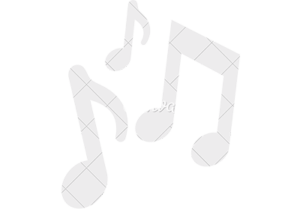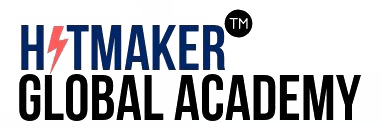ACCELERATED FOUNDATION PROGRAMME OF MUSIC & CREATIVE ARTS
Course Outline
The Accelerated Foundation Programme (AFP) is a fast-track six-month online course of intensive study. AFP trains students with a solid foundation in musical knowledge, techniques and practical experience for progression into the creative and music industry. Students of this programme will be equipped with industry standard performance skills, presentation skills and real-world experience. They will graduate with their own Electronic Press Kit (EPK).
At the end of the programme, students should be able to:
- Possess existing music skills to become more all-rounded musicians.
- Apply essential skills learnt during the programme in a real-world setting.
- Understand the music industry.
- Present themselves professionally.
| Level |
|
| Method | Blended or E-learning |
| Assessment Methods | Coursework and Quizzes | Assignment | Exam (Practical and Paper-based) |
| Maximum Duration | 12 months | No refund for failure to complete course |
Music Performance Skills
- Private Instruction
Weekly private lessons on a student’s primary instrument. Topics vary, based on the needs of the individual – from fundamentals to advanced techniques. These include personal topics of interest and preparation for juries and final projects. - Ensemble
Live performance workshops from intimate to masterclass settings aim to develop strong ensemble skills and improvisational skills. Students will also accrue a wide variety of repertoire in many different styles and technical skills. - Performance Style & Music Appreciation
Students will gain an analytical overview of styles, chart reading and critical listening as they relate to repertoire requirements. Some of the styles covered include rock, rhythm & blues, jazz, and Latin music.
Music Skills and Technology
- Music Theory
- Tonal Theory I
This module aims to provide students with the knowledge of fundamental tonal music theories and principles. These include melody writing, transposition and 4-part harmony. These are the building blocks for more advanced composition and arranging modules. - Contemporary Theory I
This module aims to arm the student with basic harmonic techniques to be able to recognise, identify and create chord progressions. The aim is to foster a creative approach for student’s own compositions, improvisations, and other musical endeavours.
- Tonal Theory I
- Aural
- Tonal Solfege I
This module is a key foundation to understanding basic aural and sight singing theory such as recognition of pulse, pitch, rhythms, and melody. Students will gain confidence in understanding and interacting musically in a live band. - Contemporary Ear Training I
This module takes the fundamentals of traditional solfege and incorporates a contemporary approach. Students will be exposed to chord progressions, extended chords, and characteristically modern rhythms such as funk and jazz, among others.
- Tonal Solfege I
- Sibelius Notation
Students will learn to use Sibelius notation software effectively to create professional looking lead sheets, master rhythm scores and individual parts. - Contemporary Music Arrangement I
Contemporary Music Writing Techniques dives into the techniques and skills of creating “Hits”. Students will be equipped with the knowledge and techniques to compose and arrange contemporary music.
Optional
- Music History
- The Middle Ages To Classical
This module explores Western music primarily from the Middle Ages to the Early Classical period, with a stronger focus on the Baroque and Classical periods. - Beethoven to Bernstein
This module explores Western music from the era of Beethoven to Bernstein, covering the musical styles from the Romantic period through the 20th century including cultural contexts and social meaning.
- The Middle Ages To Classical
- Global Experience Workshop (GEX)
A collection of intensive workshops conducted by both lecturer & visiting artist/producer/engineer simulating live and real practical experience. This is for the purpose of enhancing learning and comprehension of the real world of the music industry. These workshops are conducted either in the academy or a real working environment in a local/international setting. Students will work in groups in three different themes of workshops such as LIVE (Performance based), FAME (Artistic Development based), and STAR (Music Production based). - Nomenclature I & II
A two-semester course designed to bridge the gap between the understanding of naming conventions between a Western and Eastern musical education.
The first goal will aim to provide the student with a succinct understanding of all the common musical terms associated with traditional music learning.
The second aims to prepare the student, armed with this knowledge, to crossover into the world of contemporary music. They will learn not just definitions and naming/analysis conventions, but also slang and terms used to communicate with musicians from all corners of the globe in this ever-evolving world.
Course Information
The Music Foundation Programme is an immersive music curriculum carefully crafted and benchmarked to meet the rigorous standards equivalent to level 3 UK qualification. The programme aims to cultivate a solid foundation in musical knowledge, technique, and practical experience, providing students with the tools to appreciate and excel in the dynamic and ever-evolving creative music industry.
Throughout the programme, students are exposed to diverse musical genres and styles, allowing them to broaden their horizons and develop a deeper understanding and appreciation of the art form. The Music Foundation Programme covers all facets of music, providing students with a comprehensive and multifaceted education from theory and composition to performance and production.
The programme’s hands-on approach allows students to hone their skills and gain valuable practical experience, working alongside experienced musicians and industry professionals. Students are encouraged to develop their unique voice and creative vision through regular workshops, performances, and other collaborative projects.
Upon completing the Music Foundation Programme, students will possess the knowledge, skills, and confidence necessary to pursue a career in the music industry or continue their education at a higher level. Whether their passion lies in performance, production, composition, or any other aspect of the music world, the Music Foundation Programme provides an unparalleled foundation for success.
Admission Requirements
 GCE ‘N’ Level/Grade 9 or Equivalent
GCE ‘N’ Level/Grade 9 or Equivalent
 MIN 15 YEARS @START OF TERM
MIN 15 YEARS @START OF TERM
Music | English requirements
 ABRSM Grade 5 Practical & Theory
ABRSM Grade 5 Practical & Theory
 PASS@GCE ‘N’| IELTS 5 | TOEFL 35 | DUOLINGO 75 | Equivalent.
PASS@GCE ‘N’| IELTS 5 | TOEFL 35 | DUOLINGO 75 | Equivalent.
Course Intake | Duration
 SPRING | SUMMER | FALL
SPRING | SUMMER | FALL
 6 months, 24 teaching weeks
6 months, 24 teaching weeks
 S$9600
S$9600
Audition & Interview
 2 Pieces of Music in contrasting style. 10 Mins
2 Pieces of Music in contrasting style. 10 Mins
 15 Mins Interview
15 Mins Interview
Course Mode
Full-Time
Learning Methods
Delivery modes:
Hitmaker Programmes are conducted and delivered using the hybrid model of both online and blended learning approaches. The method allows students to learn flexibly with non-practical modules delivered online.
-
- Online/Blended Learning; or
- On-campus
Workshops
Hitmaker conducts online or on-campus Global Experience Workshops featuring the REAL industry practical experience.
Assessments
Depending on the modules, assessment/examination may vary in way of:
-
- Course Assignment – Student is required to complete and submit instructions in the form of a written assignment
- Practical Examination – Student is assessed (especially music performance) in the form of live performance judging
- Application/Computer-based Examination
- Workshop Assignments – Student is assessed in a group context and normally given a set of tasks to complete
- Paper-based Examination
Teacher-student Ratio
The teacher to student ratio shall depend on factors such as:
1. The nature of the course/module:
-
-
- Private Instructions | 1:1
-
2. The size of the premises:
-
-
- Ensemble | 1:10
- Tutorial | 1: 8
- Music Production | 1:5
- Instrumentals | 1:5
- Lecture | 1:25
-
Covid Advisory – Due to the restrictions, class size is kept to the limitation of 1 – 2 metres distancing measures. Student shall expect a smaller class sizes or smaller cohort sizes.
Course Fees
Programme Fees
| Full Fees | JAC Funding |
| S$9,600.00 | S$6,000.00 |
JAC Foundation Scholarship subsidises course fees for students, enabling them to fulfil their full potential. It also sponsors and supports costs for programmes and musical instruments. Eligible students will be given JAC Foundation Scholarship forms along with their Letters of Offer.
Application & Audition Fees
1. Pre-enrollment fees
| Application fee | S$50.00 |
| Audition fee(If applicable) | S$150.00 |
2. Enrollment fees
| Registration fee | S$300.00 |
| Study Resources & Facility | S$1,000.00 |
Assessments
The Foundation Diploma comprises of a combination of multiple assessment methods depending on the design and nature of the course. Our programme emphasises a substantial amount of practical based elements that would require a combination of different assessment methods:
- Practical / Live Performance Exam
- Written Exam
- Written and Practical Assignments
- Workshop Assignments
- Project Assignments
- Examinations & Assignments: 60%
- Workshop Assignment: 20%
- Participation: 10%
- Ethics: 10%
- High Distinction (HD) – 90 Marks and Above
- Distinction (D) – 75 to 89
- Credit (C) – 60 to 74
- Pass (P) – 50 to 59
- Fail (F) – 49 Marks and below
EXPECTED EXAMINATION RESULTS RELEASE DATE | 1month after the examination
EXPECTED AWARD CONFERMENT DATE | within 1 month after successful completion of all modules

